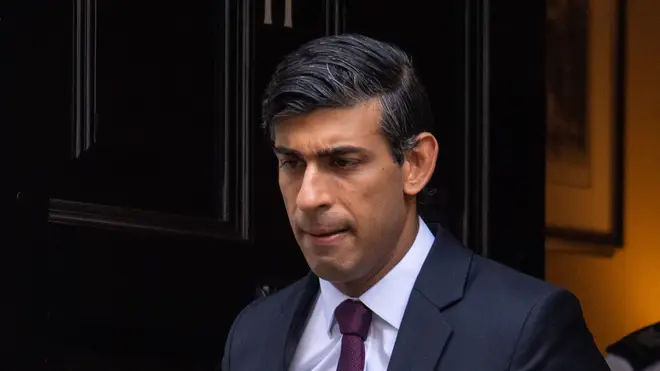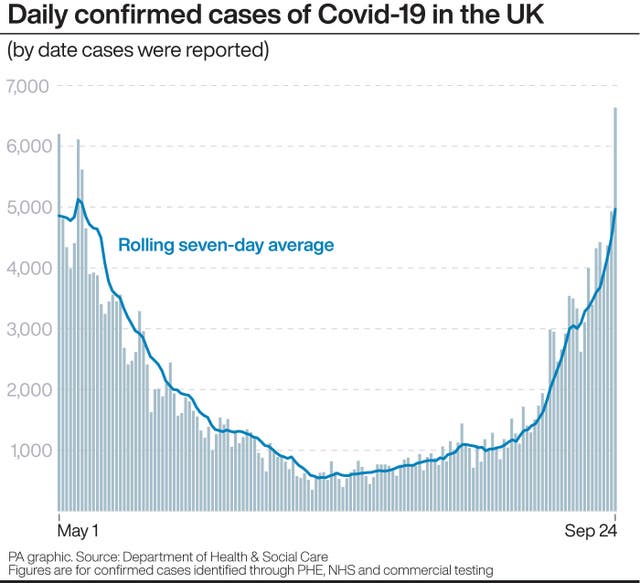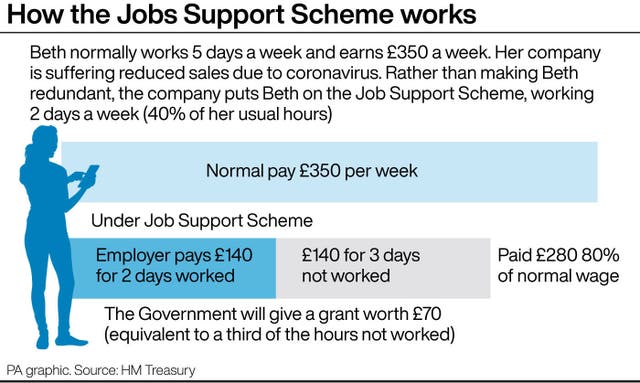
Nick Abbot 10pm - 1am
25 September 2020, 13:54

Shadow chancellor Anneliese Dodds questioned whether the wage support scheme will fail to incentivise employers to keep people on.
Chancellor Rishi Sunak has been warned his latest emergency package will not be enough to prevent the loss of hundreds of thousands of jobs from sectors hardest hit by coronavirus.
Conservative peer Lord Wolfson, the chief executive of Next, said roles will be shed from the retail industry as consumers make a permanent shift to shopping online.
Monthly cost of bringing back one employee working full-time: £1,500
Monthly cost of bringing back two employees part-time under the Job Support Scheme: £2,000
The Chancellor urgently needs to clarify how his new scheme will genuinely incentivise employers to keep workers on.
— Anneliese Dodds (@AnnelieseDodds) September 24, 2020
And shadow chancellor Anneliese Dodds warned unemployment was heading towards “1980s levels” despite Mr Sunak’s wage subsidy package, as official figures showed borrowing continued to soar and new local lockdowns were announced.
Steve Barclay, who is Mr Sunak’s deputy as chief secretary to the Treasury, defended the measures as being targeted to roles that remain “viable” but warned “we cannot save every job”.
Sectors hardest hit by the restrictions in place to slow Covid-19’s spread continued to raise warnings despite the Chancellor’s Job Support Scheme to help pay wages for employees able to work at least a third of their hours.
Lord Wolfson told BBC Radio 4’s Today programme that the seemingly permanent shift to online shopping means that a lot of “unviable” jobs are in retail.

Asked if a lot of those roles are in retail, he replied: “I think that is right. I wouldn’t want to underestimate the difficulty that is going to cause a lot of people who work in retail.
“I think it’s going to be very uncomfortable for a lot of people. We will inevitably, and have already, reduced the number of people working in our shops and I’d expect that to continue over the coming five or six years as the demand for retail goes down.”
The British Retail Consortium warned an estimated 130,000 retail jobs had been lost since January, a number they fear could nearly double by the end of the year “despite recent interventions by the Chancellor”.
The influential Resolution Foundation think tank warned the “winter economic package” would not stave off a spike in unemployment.
Chief executive Torsten Bell said Mr Sunak was right to announce fresh support but added that “design flaws mean that the new Job Support Scheme will not live up to its promise to significantly reduce the rise in unemployment”.
“Those mistakes could be addressed by scrapping the poorly targeted £7.5 billion Job Retention Bonus, and using those funds to ensure the new support scheme gives firms the right incentives to cut hours rather than jobs,” he added.
Ms Dodds said the “million-dollar question” is whether the wage support scheme will fail to incentivise employers to keep people on as she sounded the warning of further mass job losses.
“Certainly those unemployment levels are rising very substantially, they’re going back towards 1980s levels,” the Labour MP told Today.

Mr Barclay said it was “very sadly” the case that there will be more unemployment as a consequence of coronavirus but that support was targeted at getting those in “viable” jobs back to work while the unemployed can be retrained.
“The Chancellor has been very honest that we cannot save every job, but what we need to do with these measures is target our funding on jobs that are viable, enabling people to come back, rather than them being at home with a furlough that’s already for eight months, for a very long period of time,” he said.
“But the equally important thing is not just the number of people that are unemployed but how quickly we get them back into the labour market, because the length of unemployment is absolutely critical.”
Mr Barclay denied economic experts’ warnings that the new jobs protection scheme would not give enough of an incentive to employers to keep workers on, with suggestions it is cheaper to bring back one furloughed employee than two on half-time.
“The issue is that this is more than about spreadsheets, this is about the flexibility that employers said they want, they want to retain their skilled workforce,” he said.
Treasury officials are understood to be working on a longer term support scheme for the unemployed, which is expected to be announced by March.
In other developments:
– The number of coronavirus cases across England jumped 60% in one week, according to the Office for National Statistics infection survey.
– Cardiff and Swansea prepared to go into local lockdown from 6pm on Sunday.
– Leeds was expected to be made an “area of intervention” and was likely to face new restrictions from midnight.
– London was expected to be placed on the Covid-19 watchlist as an “area of concern”.
– Official figures showed that national debt hit a new record at the end of August, as public sector borrowing increased by another £35.9 billion to hit £2,023.9 billion.
The multibillion-pound Job Support Scheme, which will last for six months from November, will see the state and employers top up the wages of staff working at least a third of their normal hours.
A worker doing a third of their normal hours will still receive 77% of their usual pay, up to a cap. The state would bay 22% while the employer covers 55%.
Other measures included in the package include an extension of the VAT cut for tourism and hospitality and more flexible terms for the repayment of Government-backed loans.